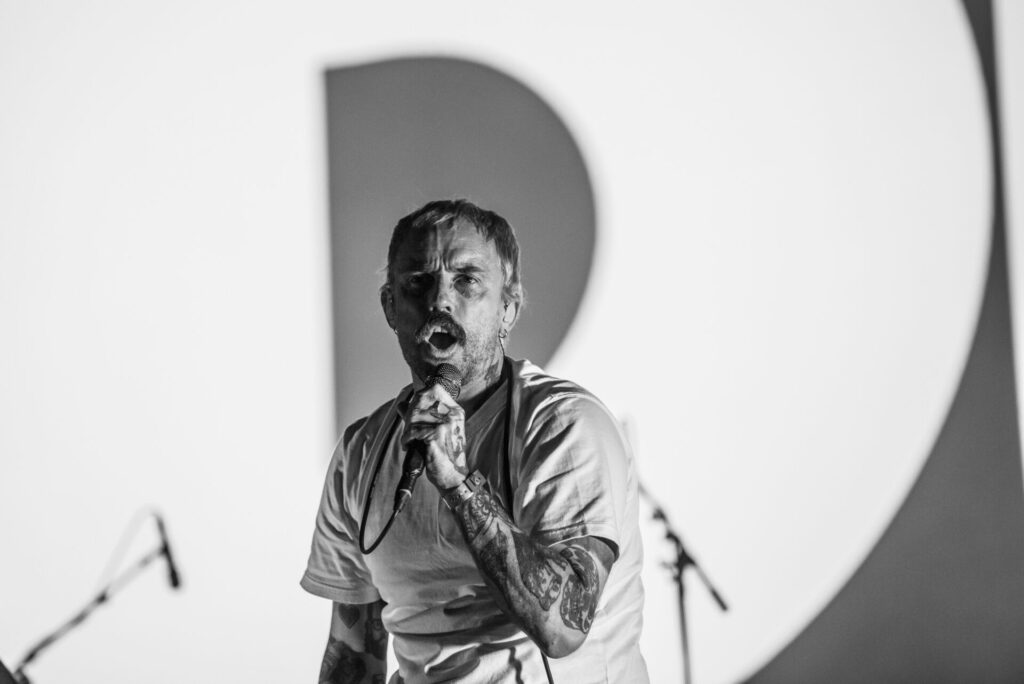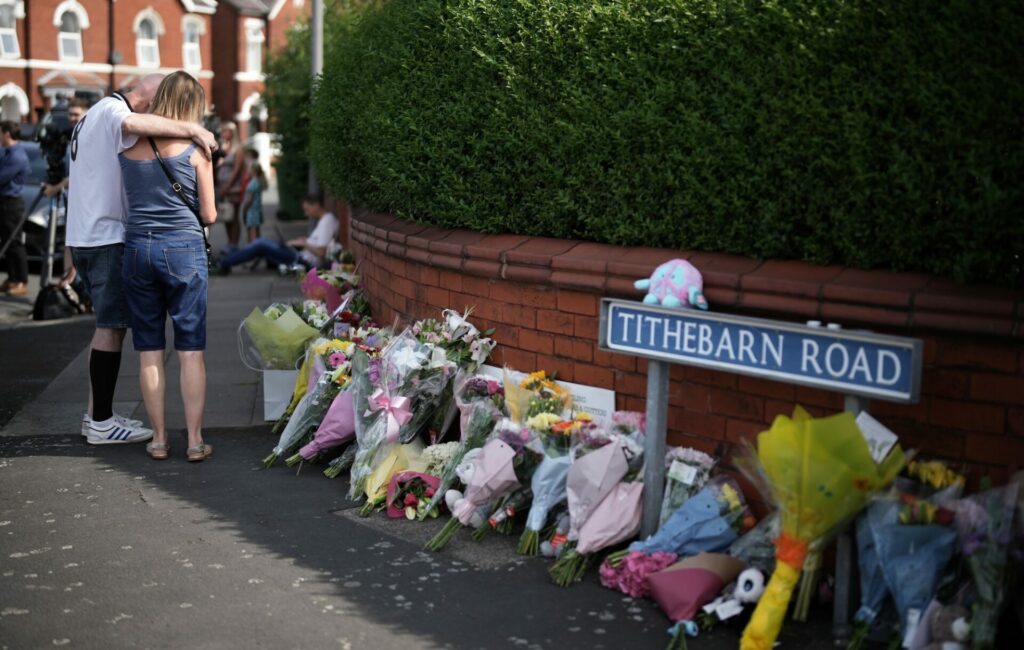Love Music Hate Racism: IDLES, Fontaines D.C. and more sign statement after far-right riots
“Music reflects the beautiful eclectic mix of our communities. Join us in building a movement that celebrates that: Love Music Hate Racism”.

Fontaines D.C. and IDLES are among the musicians to have signed a new statement from Love Music Hate Racism following far-right violence in the UK.
A wave of violence has erupted in cities such as Sunderland, Rotherham and Hartlepool in recent weeks in the wake of the Southport stabbings – where three children were murdered at a Taylor Swift-themed dance class.
The killer, 17-year-old Axel Rudakubana, was born in the UK, but far right rioters have repeatedly taken advantage of the incident to cause racial unrest. Mosques in several cities have been burnt down, while footage has shown ethnic minorities being attacked by mobs.
Now, the Love Music Hate Racism campaign has shared a new statement condemning the attacks, with other signatories including Enter Shikari, Nubya Garcia and Frank Turner.

Read the statement in full below:
“Love Music Hate Racism condemns the shocking scenes of far-right violence since the tragic murder of three young children in Southport on 29 July.
“Racist and organised fascists rampaged through towns and cities across Britain attacking mosques, setting fire to asylum seeker hotels, and viciously assaulting Black and Brown people. The violence has been fueled by far-right figures such as Tommy Robinson, aka Stephen Yaxley-Lennon, willfully spreading false information by blaming a Muslim migrant for the Southport attack.
“The racist violence that quickly spread from Southport to cities including Sunderland, Rotherham, Liverpool, Manchester, Belfast, Nottingham and Plymouth does not exist in a vacuum. Politicians and the media must share a section of the blame for fostering a climate where racist and Islamophobic discourse has become a feature of mainstream politics. The rhetoric of ‘Stop the Boats’, the demonising of asylum seekers in Home Office accommodation and the labelling of Muslim communities as ‘extremists’ have all played a role in normalising the hateful ideas of the far-right.
“Yet where there is racism, there is always resistance to it. A reported 25,000 people joined antifascist protests on 7 August in opposition to the far-right threatening to target immigration advice centres and solicitors across the country. At least 8,000 were on the streets in Walthamstow in London, 7,000 in Bristol and 2,000 in Brighton.
“Love Music Hate Racism believes more resistance is needed and that artists have a key role to play in bringing communities together in the current climate. Love Music Hate Racism was founded in 2002 in response to the growth of the Nazi British National Party (BNP). The campaign worked with hundreds of musicians who used their platforms to successfully challenge the fascist threat of the BNP following the proud tradition of Rock Against Racism. Music has the power to spread hope and unite communities against the hatred and division bred by the far-right.
“It is now more important than ever that music is at the heart of a united cultural movement which will ward off the threat of the far-right and strengthen communities damaged by the corrosive effects of racism.
“Music reflects the beautiful eclectic mix of our communities. Join us in building a movement that celebrates that: Love Music Hate Racism”.
The likes of Massive Attack and Nova Twins led the musical world’s condemnation of the far-right riots, with Massive Attack sharing a statement from race equality think tank the Runnymede Trust.
“This violent racism has long been simmering under the surface. What is happening is the direct result of years of normalised racism and Islamophobia, enabled by politicians and the British media,” they wrote.
Nova Twins, in their own statement, said they were “sickened by the surge of far-right violence in the UK”.
“These actions distract from the grief and empathy owed to the Southport victims and their families,” they said. “The heartbreaking incident of violence towards young girls should be met with compassion and solidarity.
